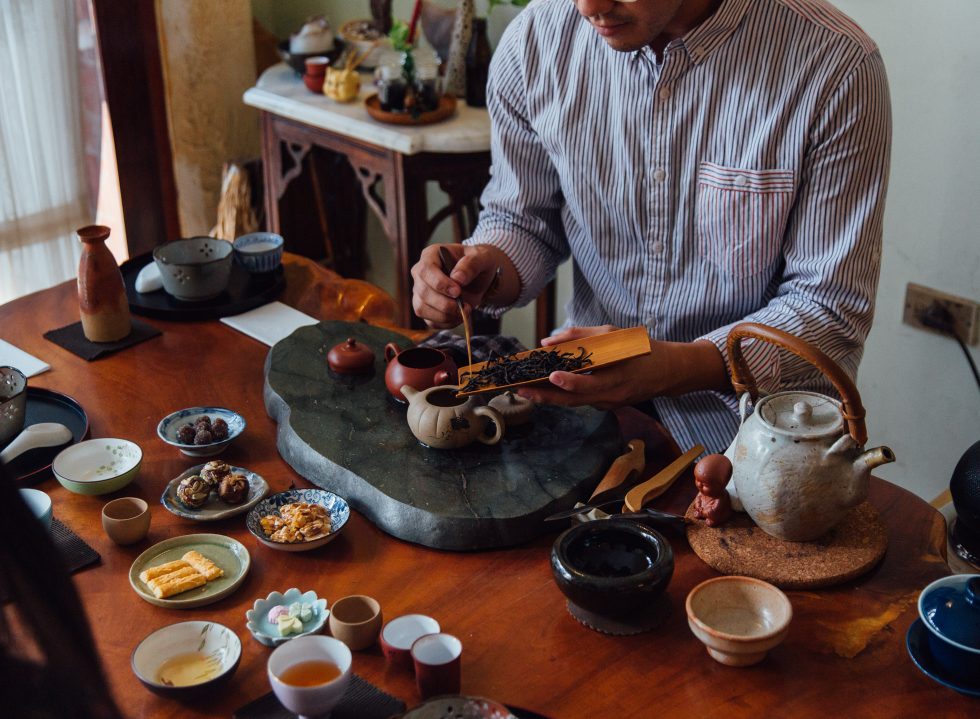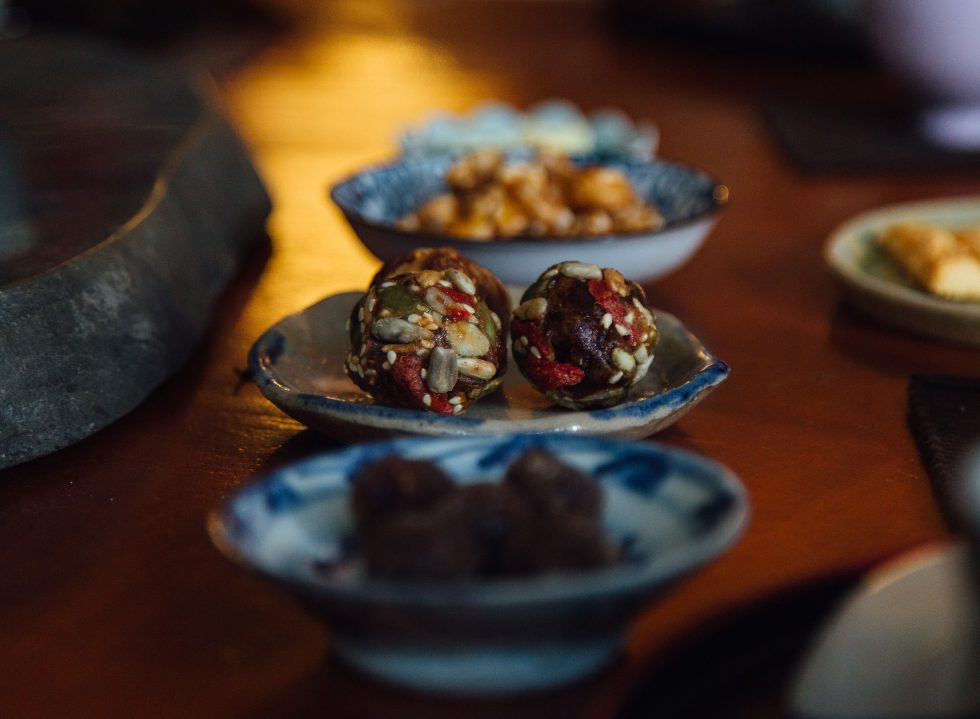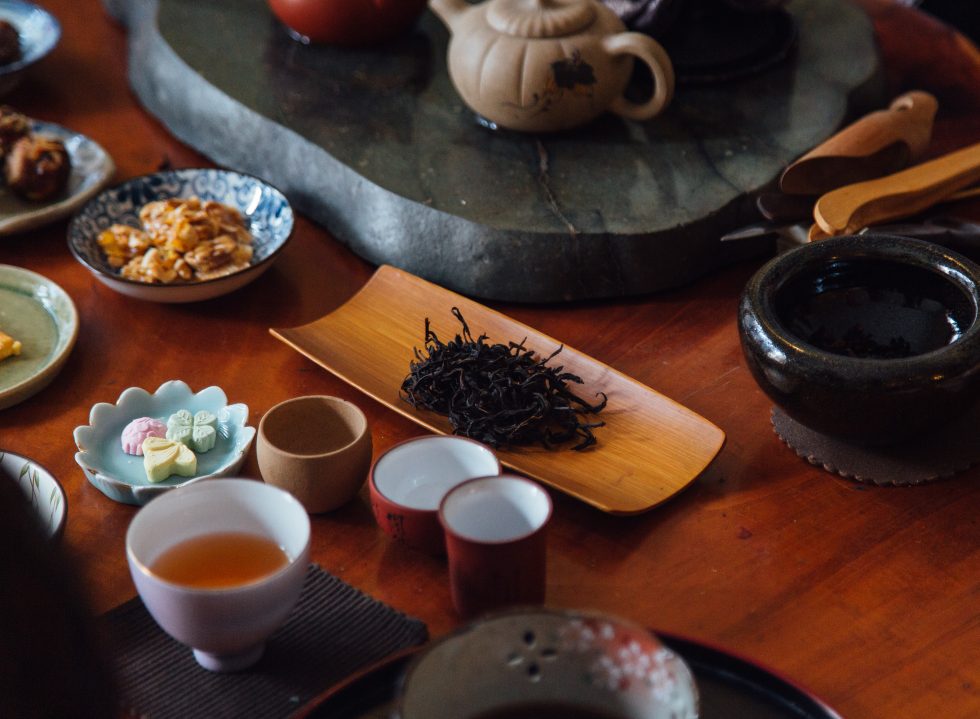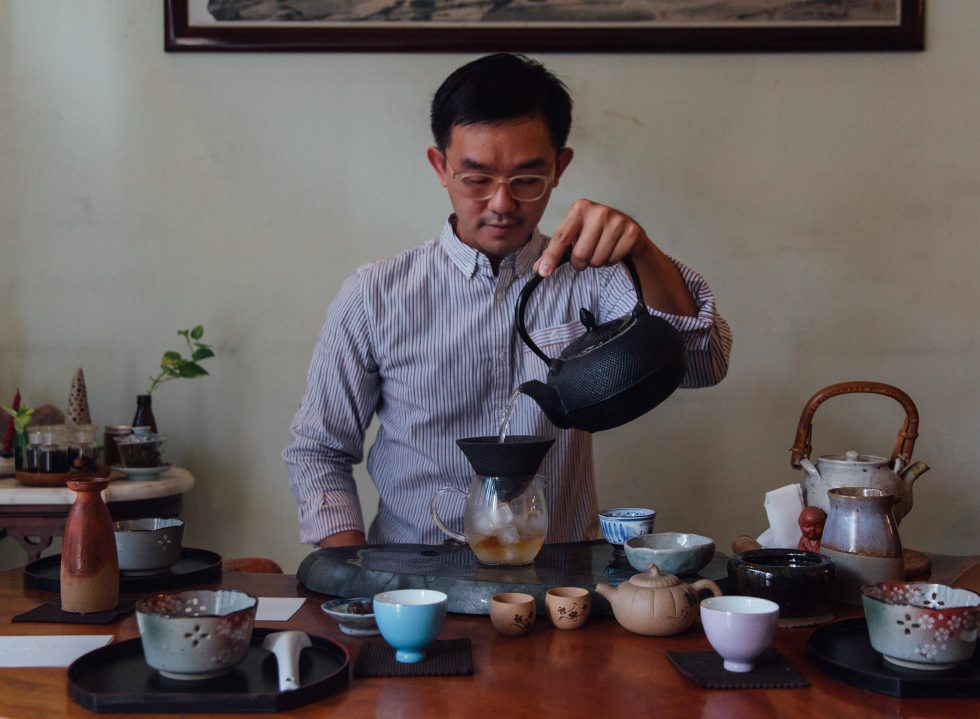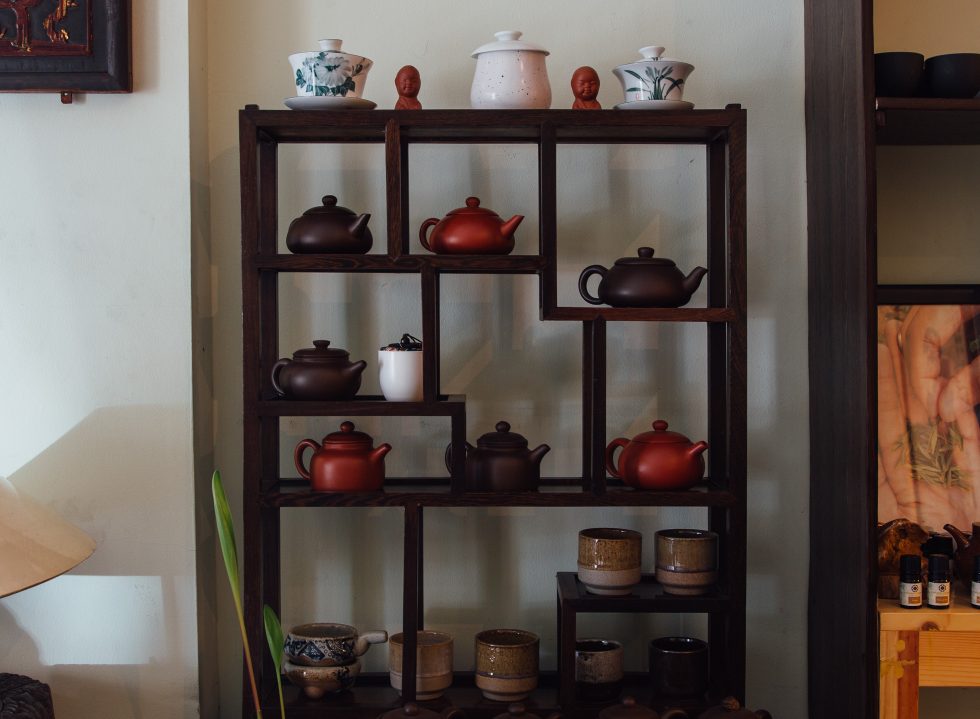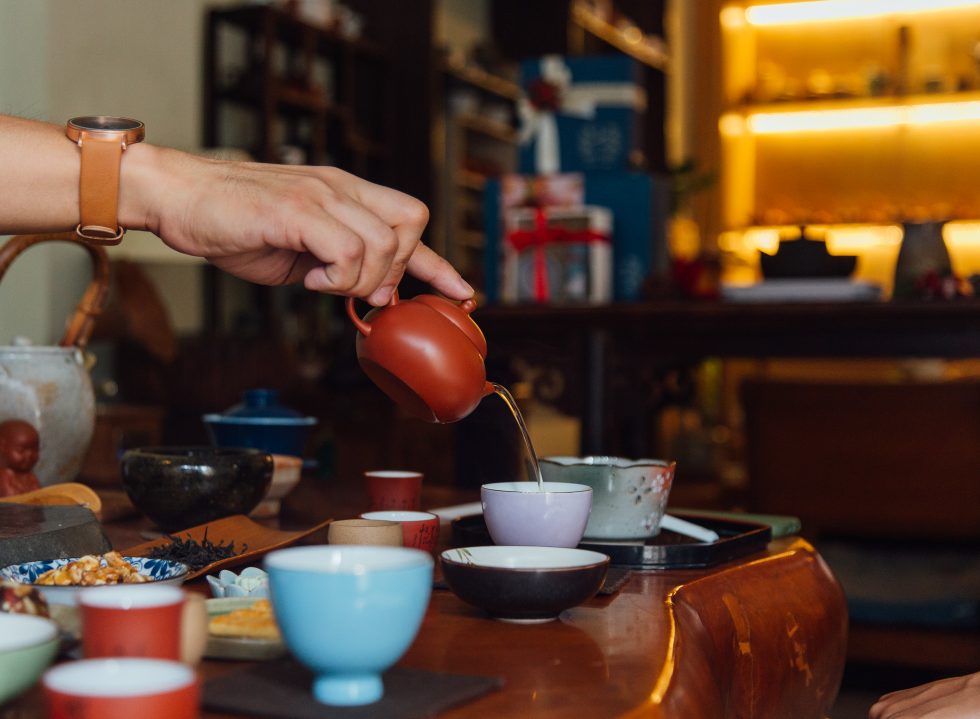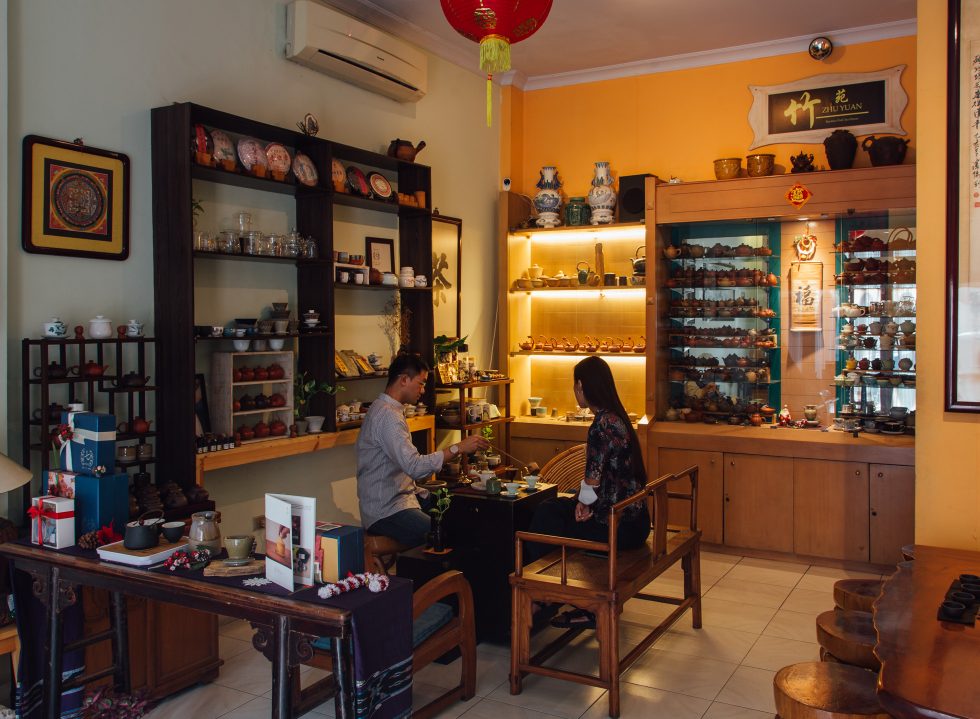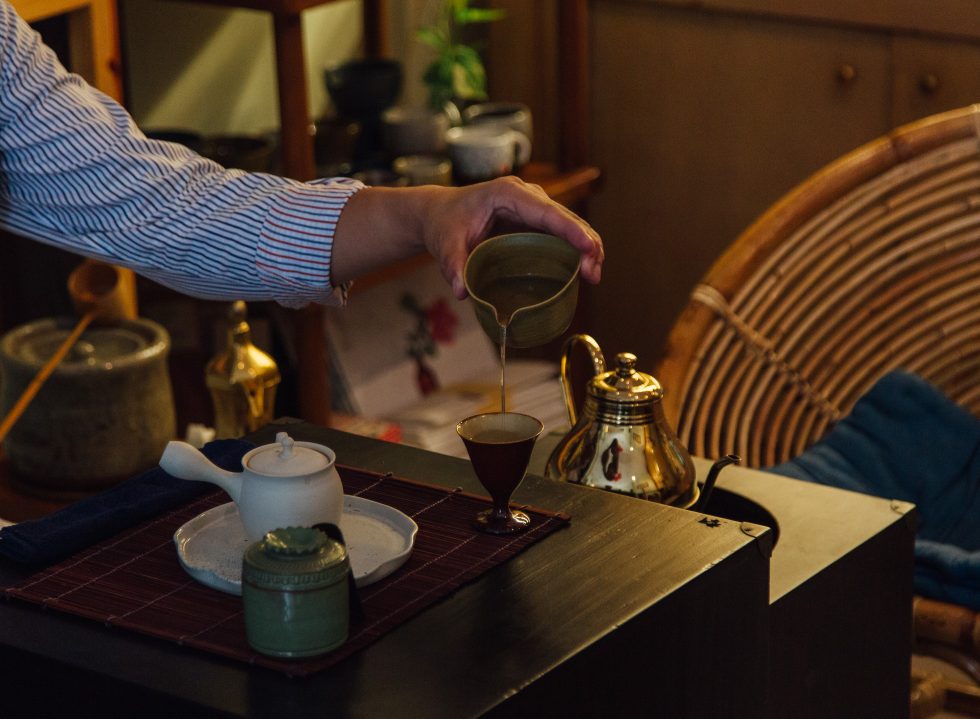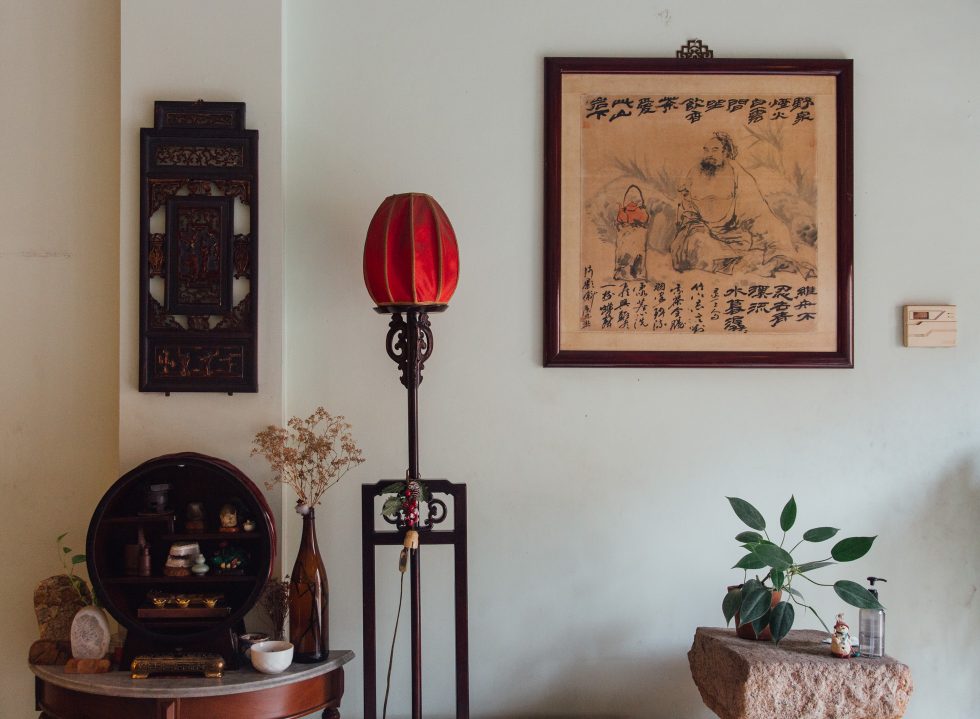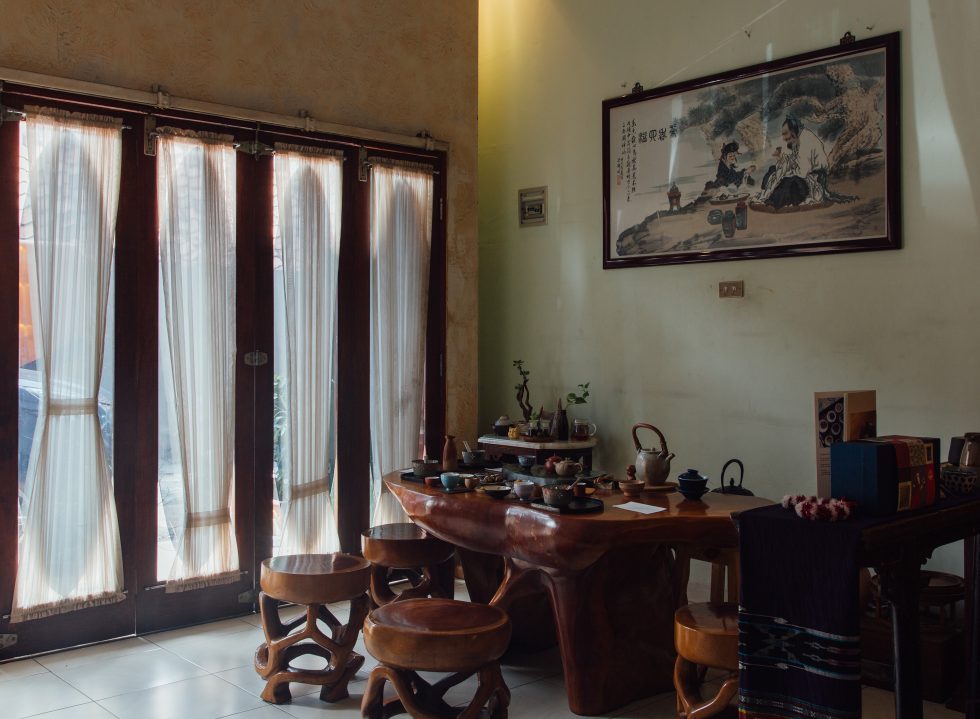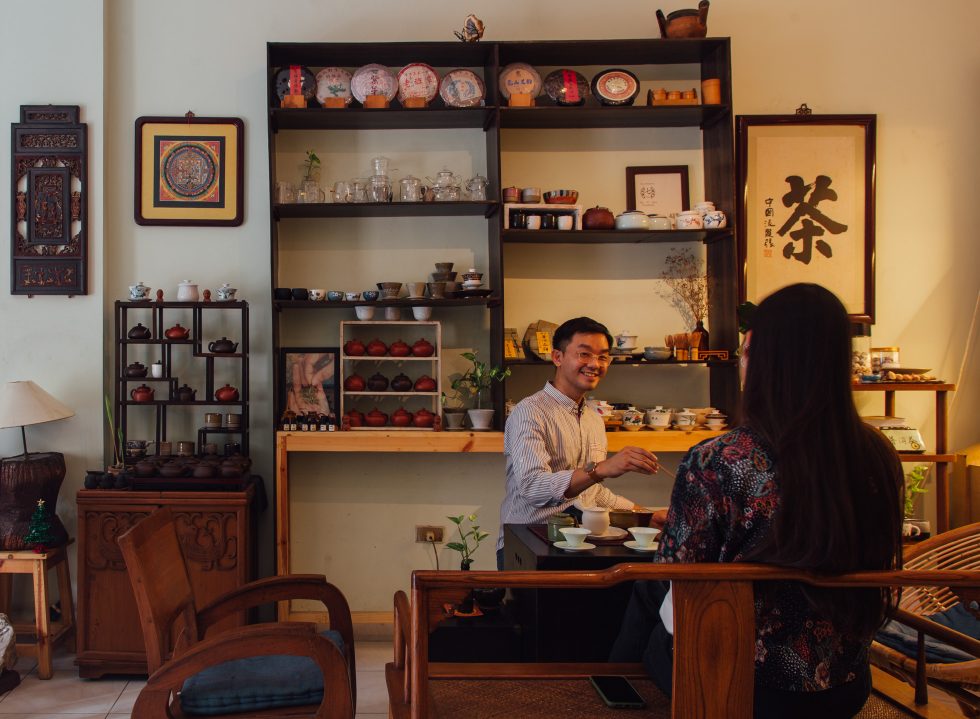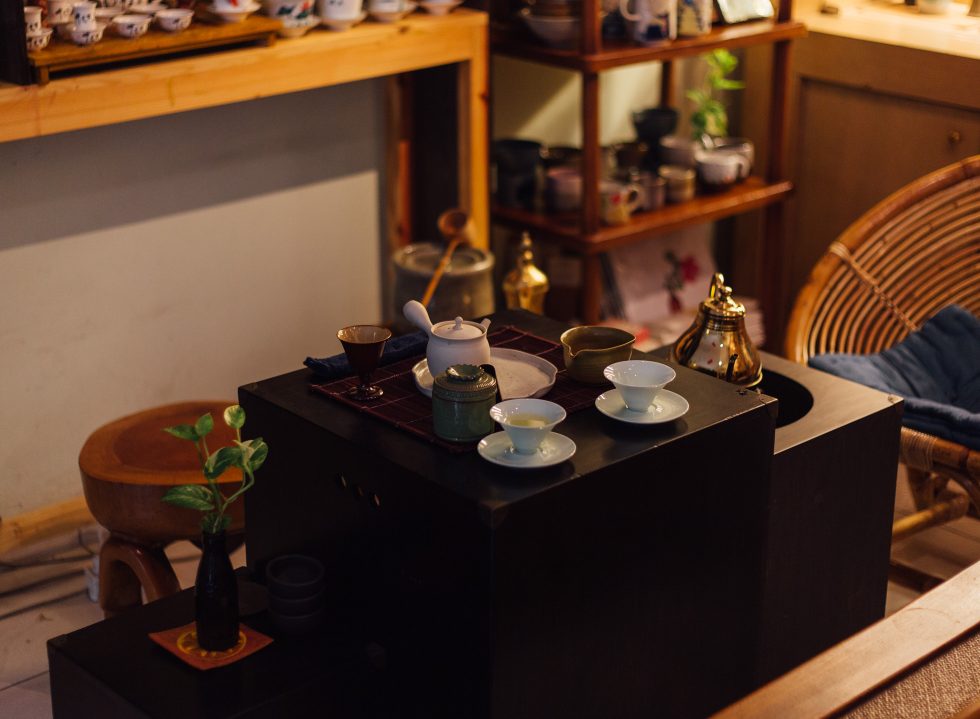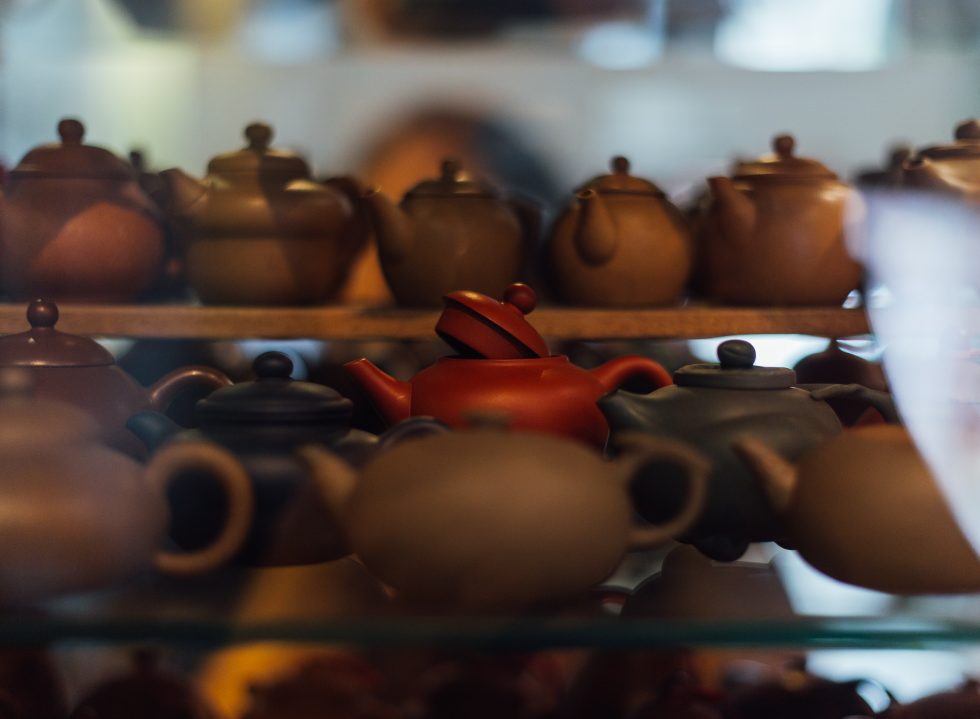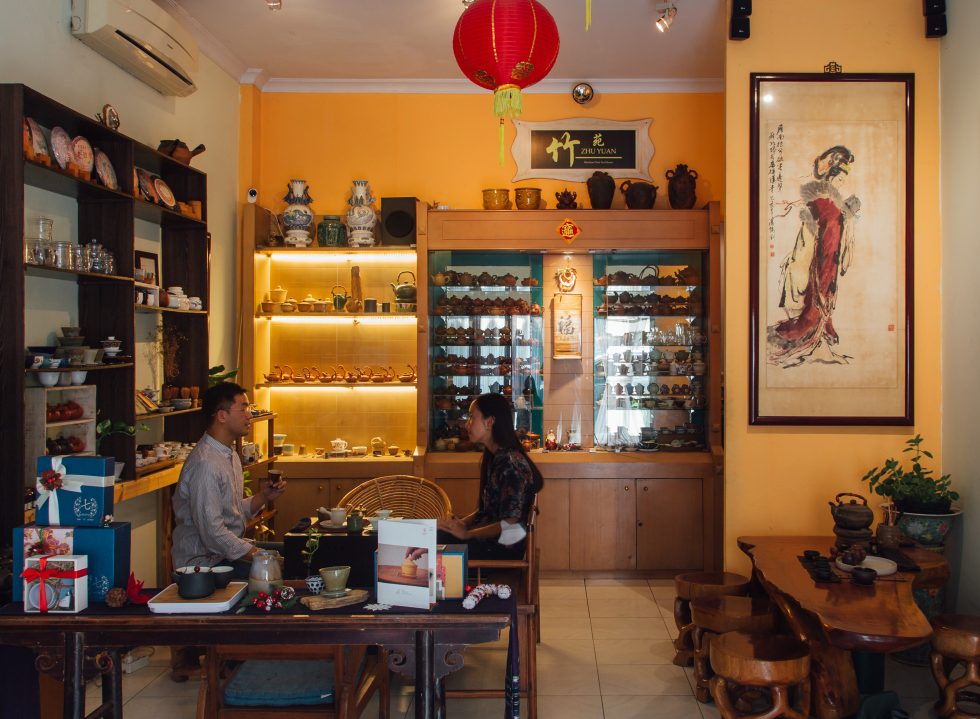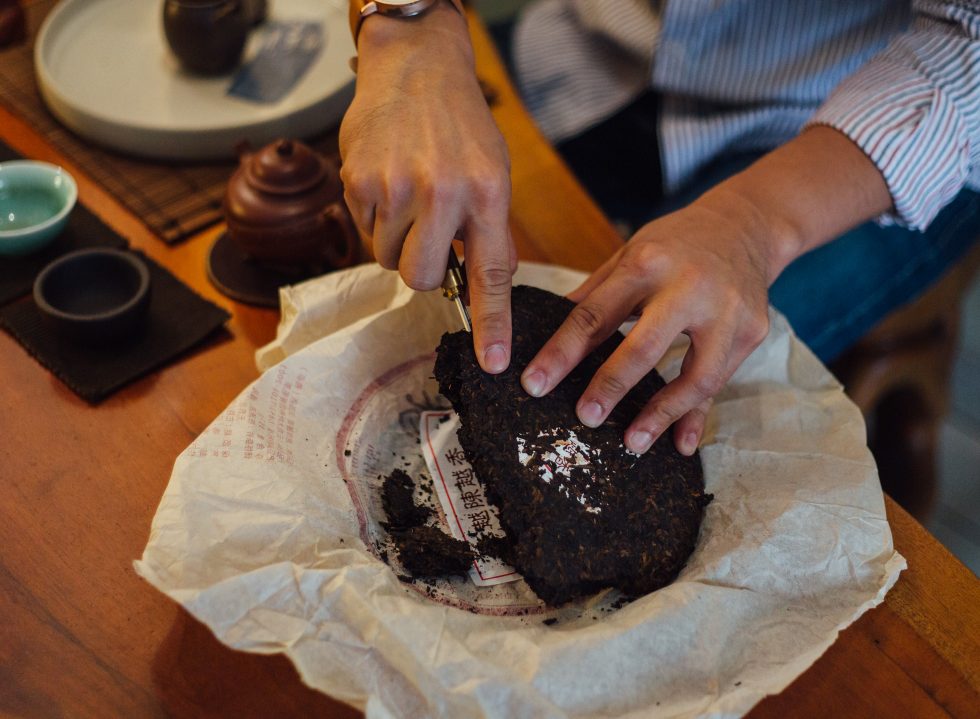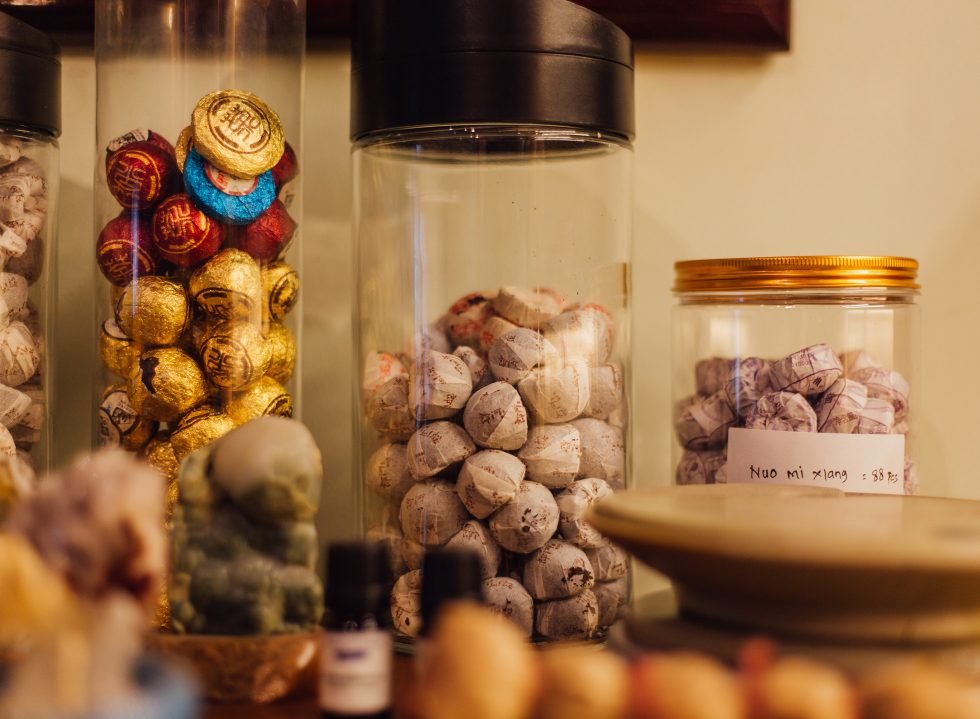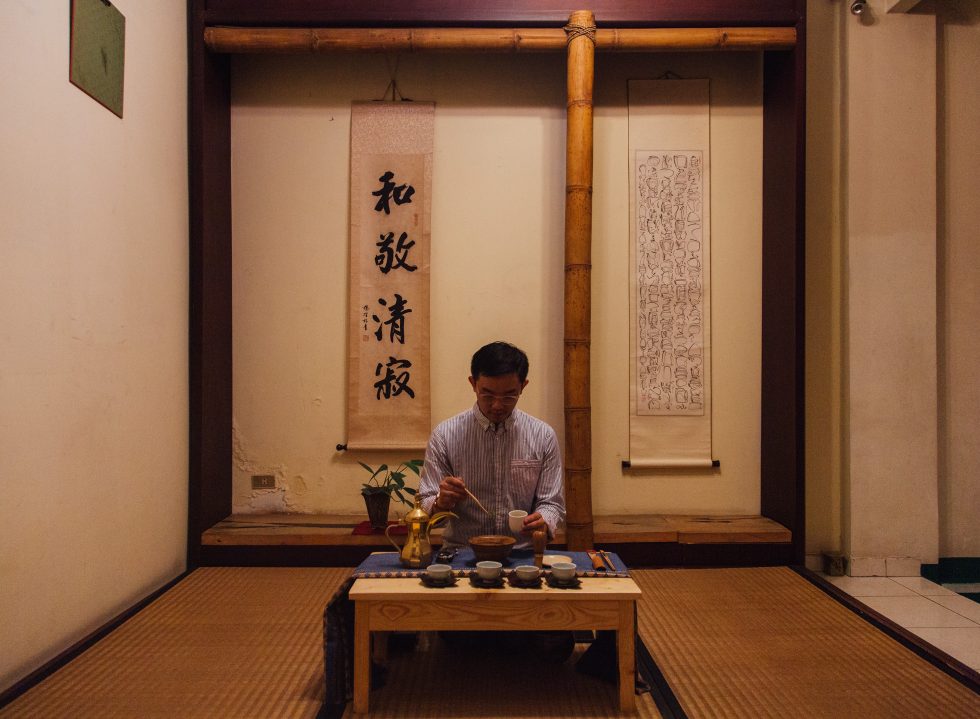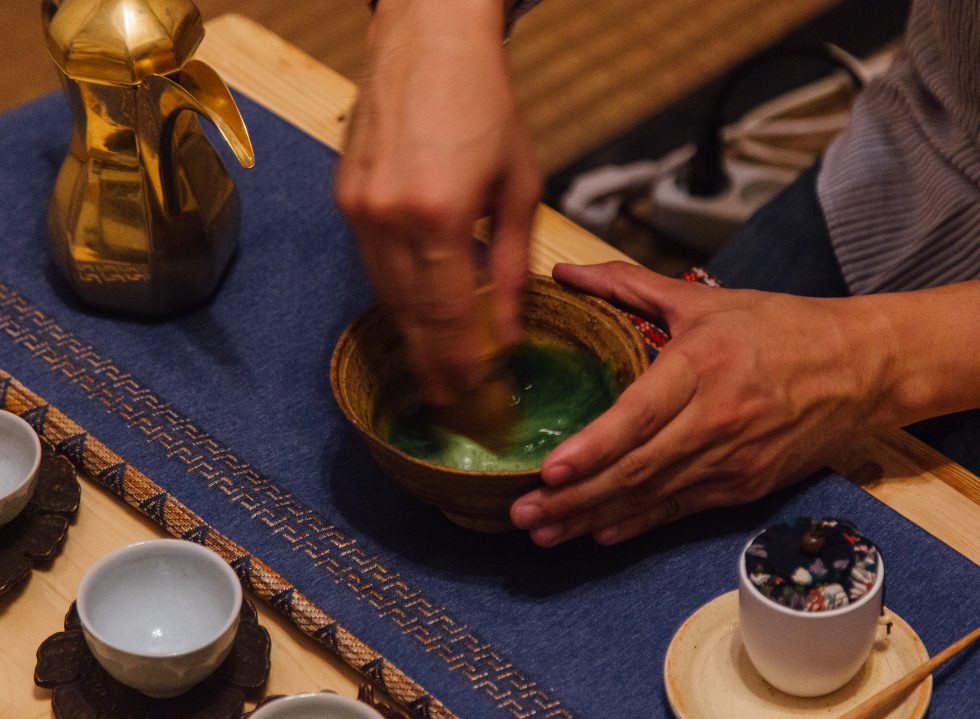Whether it’s a rite of passage, ceremonial custom, or simply the gratifying treat of settling in for a warming brew, tea and it’s time-tested comfort, rituals, and philosophy has been tied to a manifold of cultures and nations.
In Japan, for example, their tea-drinking rituals involve a few courses of ceremony-grade matcha, traditional sweets such as the pastel-coloured Wagashi, with proper garms and etiquette to match. Chinese tea, on the other hand, encourages a more playful display, with the likes of Gongfu (Kung fu) Tea Ceremony, otherwise known as ‘wet brewing’ where hot water is poured over teawares and tea is steeped in smaller brewing vessels to accentuate flavour.
Having been trained in Japanese, Chinese, and Taiwanese tea ceremonies, Joe Hutomo, founder of 1 Tea House, now known as Koningsplein Co., fuses his training and opts for a blend of all three practises, in a way shaping his own informal and relaxed set-up which he believes helps put patrons at ease. At Koningsplein Co., that’s the whole point.
Set amongst the shophouses in Jl. Bungur Besar in Gunung Sahari, the teahouse’s obscure location may require a bit more effort to find. But once inside, it’s fairly easy to spend the next few hours off the radar, untethered from your day’s worries and to-do-lists. Walls are decorated with Chinese paintings and calligraphy, and on one side of the room, an impressive collection of tea pots and cups are elegantly dotted on a glass shelf. On neighbouring racks, rings of fermented traditional Chinese Pu’Er tea and dainty ceramics are on display.
All traditions aside, Joe believes that the art of tea-drinking boils down to a personalised ritual. That at the end of the day, what matters is enjoyment and connection, rather than fancy techniques. This philosophy rolls over into all the services on offer: tea ceremony for two? Check. Group tea sessions? Check. Personalised tea blend classes? Check.
With every brew, Joe makes a case for a fusion of tea philosophies, and in-between sips, he freely shares his wealth of knowledge with ease: from origins, etiquettes, to myths and oddities of tea and all its glory.
From house blends to hand-rolled tea collected from all across Indonesia, China, Taiwan, and Japan, their collection caters to a spectrum of moods, and of course, health benefits. Depending on the blend—whether the lighter No. 05 “Green” Empress Oolong (Oolong Tea, Osmanthus Flowers) or the more herby No. 13 Journey to The East (Green Tea, Marigold, Mint, Cinnamon, and Saffron)—Koningsplein hones in on crafting blends that befit different palates. To top it off, homemade light snacks like the savoury Kastengel Keju (Dutch-style cheese cookie) or the nutty, sugar-covered Ampyang Jahe, are served to balance out the flavours.
All in all, Joe acknowledges the inherently reflective nature of tea as a quality that bridges a sort of invitation for self-reflection and quiet time—a sentiment the pandemic and lengthened time spent at home has drawn out. For Joe at least, he hopes “this discipline will extend long beyond the pandemic.”
